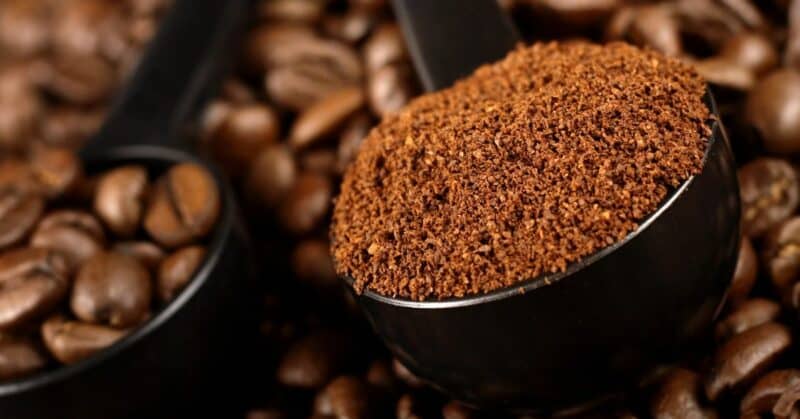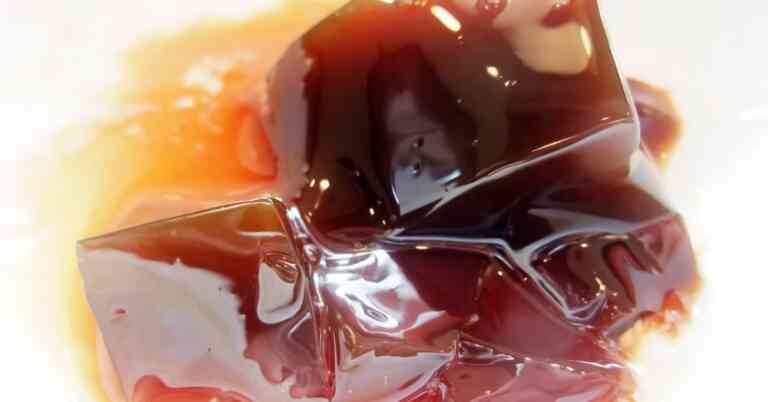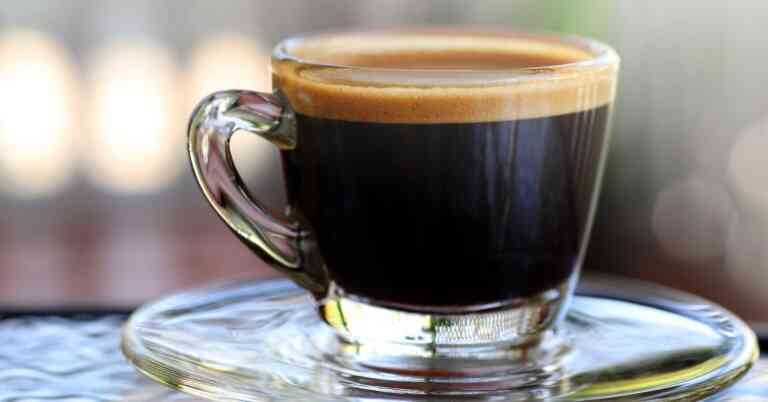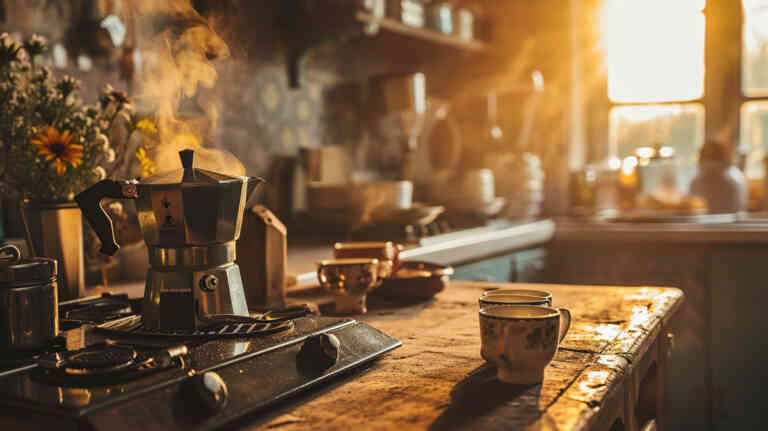How Long to Steep French Press: The Secret to a Perfect Brew
French press coffee is a beloved brewing method that allows coffee lovers to experience their coffee beans’ full flavor and aroma.
It is a simple process that involves steeping coffee grounds in hot water before plunging the plunger to separate the brewed coffee from the grounds.
Steeping time is one of the most critical factors determining French press coffee’s quality. This article will explore how long it takes to steep French press coffee to achieve the perfect cup.
The Basics of French Press Coffee Brewing
Before diving into steeping time, let’s review the basic steps of French press coffee brewing.
Here are the steps:
- Heat water to the right temperature: The ideal temperature for French press coffee is around 200°F (93°C). If you don’t have a thermometer, you can bring water to a boil and let it sit for 30 seconds to a minute to cool down to the right temperature.
- Add coffee grounds: Add the desired amount of ground coffee to the French press – a coarse grind is best. A good rule of thumb is to use 1 to 2 tablespoons of coffee for every 4 ounces (120 ml) of water. You’ll likely have perfect French press coffee if you have scales and can get the coffee-to-water ratio right (1:14).
- Pour water over the coffee: Pour the hot water over the coffee grounds, ensuring all the grounds are saturated. Give the mixture a gentle but thorough stir to ensure the even distribution of all the grounds.
- Steep the coffee: Set a timer for the desired steeping time and let the coffee steep. The length of steeping time depends on personal preference and the type of coffee beans used.
- Press the plunger down: After the desired steeping time, plunge gently and slowly to separate the brewed coffee from the grounds.
- Pour and serve: Pour the brewed coffee into a mug or carafe and enjoy!
Factors That Affect Steeping Time
The steeping time for French press coffee can range from 2 to 5 minutes, depending on several factors. Here are some of the factors that affect the steeping time:
Type of coffee
The type of coffee you use will affect the steeping time. For example, dark roast coffee typically requires a shorter steep than lighter roast coffee.
This is because dark roast coffee is more soluble and quickly releases its flavors. Brewing dark-roasted coffee will, therefore, take less time.
Coarseness of The Grind
The coarseness of the coffee grounds also affects the steeping time. Coarse coffee grounds require a longer steeping time than fine grounds.
This is because the water takes longer to extract the flavors from the larger coffee particles.
A very coarse grind size might result in a weaker cup of coffee. Conversely, a medium-coarse grind size often has the best results, as does using a burr grinder to grind coffee.

Water Temperature
The water temperature affects the steeping time because hotter water extracts flavors more quickly than cooler water.
However, if the water is too hot, it can over-extract the flavors and make the coffee taste bitter. However, with too cool water, you’ll end up with an under-extracted brew.
If you’re using an electric kettle to boil water, let it sit for a minute to allow the temperature to cool before you pour.
Coffee-to-Water Ratio
The ratio of coffee to water affects the overall strength of the coffee. The general rule for a French press is to use 1 part coffee grounds to 14 parts water. However, some people prefer to use a 1:12 ratio. This would create a stronger brew.
Desired Strength
The strength of the coffee also affects the brew time. You should steep the coffee longer if you prefer strong coffee. If you prefer weaker coffee, you can steep it for a shorter time.
Ideal Steeping Time
Now that we’ve covered the factors that affect steeping time, let’s talk about the time needed for the perfect cup.
Generally, French presses need between three and five minutes for the brewing process. However, the steeping time can vary depending on the factors mentioned above.
Here is a breakdown of the recommended steeping time for different types of coffee:
- Light Roast: Light roasts are fruity and have a delicate flavor profile. To avoid over-extraction, it is recommended to steep light roasts for two to three minutes.
- Medium Roast: Medium roasts are the most popular. They have a balanced flavor profile and are perfect for French press brewing. The recommended steeping time for medium roasts is between three to four minutes.
- Dark Roast: Dark roasts are bold and have a smoky taste. They are perfect for those who prefer a stronger cup. The recommended steeping time for dark roasts is between four to five minutes.
- Espresso: It’s not recommended to use espresso grounds in a French press, but if it’s all you have, you’ll need to adjust your brew time.
- Espresso has a fine grind size and a shorter steeping time. For French press brewing, it is recommended to steep espresso for one to two minutes.
How Does the Water Quality Affect French Press Coffee?
Water quality is a crucial factor affecting French press coffee’s taste and quality.
The quality of water used can significantly impact the taste, aroma, and overall flavor profile of the entire beverage.
Here are some ways in which water quality can affect French press coffee:
- Mineral content: This can impact the taste. Minerals such as calcium, magnesium, and bicarbonate can affect coffee’s acidity, sweetness, and bitterness. Hard water, which contains high levels of minerals, can make it taste harsh and bitter, while soft water can make it taste flat and dull.
- Chlorine and other chemicals: Chlorine and other chemicals used to treat tap water can affect the taste and aroma of coffee. Chlorine can leave a chemical taste and odor, while other chemicals can alter the flavor profile.
- Impurities: Impurities such as dirt, dust, and rust can affect the taste and quality of your brew. These impurities can give your drink a sour or metallic taste.
- pH level: The pH level of water can impact the flavor of your cup of coffee. Water that is too acidic or alkaline can affect its acidity and bitterness.
- Temperature: The water temperature when brewing coffee can also affect the taste and aroma. Too hot water can over-extract coffee, resulting in a bitter taste. Too cold water can under-extract coffee, producing a weak and watery cup.

Tips for Using the Right Water for French Press Coffee
- Use filtered or bottled water: Using filtered or bottled water can help to remove impurities and chemicals that can affect the taste and aroma of coffee. Filtered water is especially recommended for those living in hard water areas.
- Check the mineral content of the water: Some minerals, such as calcium and magnesium, can enhance the flavor of coffee, while others, such as iron and copper, can give the coffee a metallic taste. Check the water’s mineral content and choose water with a balanced mineral profile.
- Use water that is the perfect temperature: The ideal temperature for French press coffee is between 195 and 205 degrees Fahrenheit. Boil the water and let it cool for 30 seconds before pouring it over the coffee grounds.
How Much Does the Type of Beans Affect the French Press Method of Brewing Coffee?
- The type of beans used in French press coffee can significantly impact the taste, aroma, and overall quality of the coffee.
- Here are some ways in which the type of beans can affect French press coffee:
- Flavor profile: Different kinds of beans have unique flavor profiles that can affect the taste of French press coffee.
- Arabica beans, for example, are known for their sweet and fruity flavor. In contrast, Robusta beans are known for their earthy and bitter taste. The type of coffee bean used can also affect the acidity, body, and aroma of the coffee.
- Freshness: The beans’ freshness can also impact the taste of French press coffee. Freshly roasted beans produce a more flavorful and aromatic cup of coffee. In contrast, stale or old beans can taste flat and dull.
- Origin: The origin of the beans can also affect the taste of French press coffee. Beans from different regions can have other flavor profiles due to soil, climate, and altitude variations.
- For example, beans from Central America tend to have a bright and fruity taste. In contrast, those from Indonesia tend to have a more earthy and spicy flavor.
Tips for Choosing the Right Beans for French Press Coffee
- Choose high-quality beans: Choose fresh beans that have been roasted within the last few weeks. Freshness is vital to producing a flavorful and aromatic cup of coffee.
- Experiment with different types of beans: Experiment with Arabica, Robusta, or a blend of both to find the flavor profile that suits your taste preferences.
- Consider the origin of the beans: Choose beans from regions that produce coffee with the flavor profile you enjoy.
- Grind the beans properly: Ensure the grounds are the right size for French press coffee. The beans should be ground to a coarse consistency to ensure they can be extracted correctly in the French press.
Final Thoughts
Like all coffee brewing methods, experimenting with variables will help you to make great French press coffee. Though there are guidelines on brewing coffee with this method, great coffee means different things to different people.
The only way to get better coffee is to experiment, only changing one variable at a time until you get the perfect French press coffee for you!







